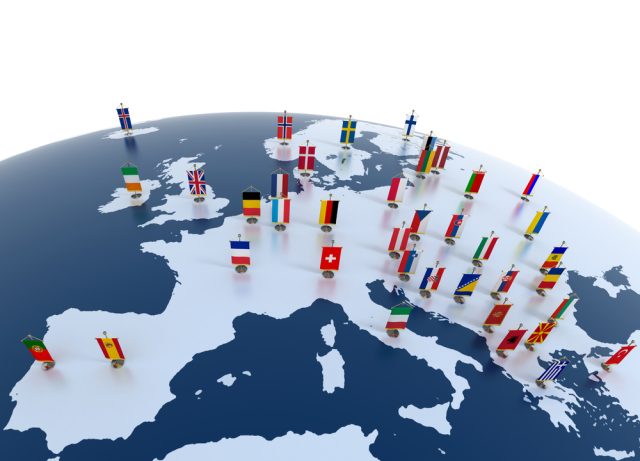
Belgium is the country that as of 1st January this year assumed the presidency of the Council of the European Union until June 30, 2024.
This practice in effect since 1952, when the Federal Republic of Germany first held the presidency, has, then, continued over the years, until the agreement of every six months rotation was reached starting in 1958.
Since that time, the current 27 member countries have undertaken a rotation to take it over. For the Belgian representation this is the 13th time, following the presidency owned by Spain and preceding Hungary in this task. In this case, these 3 states are expected to work closely together, creating the “trio,” a group that will decide, with proposals and decisions, on what the future of Europe will be for the coming months.
What is the Council of the European Union presidency about?
The state that temporarily assumes the EU presidency must attend and organize all sessions and meetings of the Council of the EU, represent it with the other institutions dealing with the body in question, as well as carry on the normal work of the Community. This year is time for Belgium to take care of a very important task during its term, namely the renewal of the Parliament, with the European elections to be held from 6 to 9 June 2024. But it is certainly not this the most delicate moment it will face if we consider the current situation in which Europe finds itself at this time.
What is Belgium preparing to face in the six months of its presidency?
When one considers that we have been faced a global pandemic (sars covid-19) for a few months, that the war between Russia and Ukraine has destabilized the mainly European balances, that the new war conflict in the Middle East heavily splits public opinion, not to mention the imminent need to deepen the problem of the energy and environmental crisis and to keep community relations firm, the upcoming European elections and the importance of spurring people to vote, convincing most to participate in a political and democratic life, very often ignored, becomes one of the blandest tasks to consider.
The Belgian Prime Minister, Alexander de Croo, has stated that one of the key aspects that will be addressed by the government he heads will mainly concern the economic one, with a strengthening of welfare as well as directing economic and industrial growth toward the values proper to the Green Deal, to help achieve the much-discussed climate neutrality by 2050. The priority, in any case, again according to De Croo’s statements to the press, remains the protection of citizens, a concept that is perhaps a bit too haphazard and deserving of more in-depth observations with detailed and incisive choices that aim at everyday concreteness by examining the real needs of citizens. But also weighing on the Belgian semester is the lack of agreement at the last European Council, when the member states found themselves with different positions with respect to the budget review, in which case the country entitled to the presidency will have to use all the means at its disposal to persuade the European representatives and channel them toward a compromise that can satisfy everyone’s positions.
“Before we expand, we need to improve ourselves.”
In one of his interviews, the Belgian leader talks, again, about the need to improve the work of the European Union in terms of EU unity and the need to take solutions more quickly than what has been done so far. Apparently, therefore, there is still a need to improve from the bureaucratic point of view, which is considered too slow and cumbersome. There is to be considered, however, the issue of Eastern Europe and the Balkans, which are insistently asking to be part of the Community, but apparently this is not one of the priorities to be put on the agenda, at least not for now.
In the plan of the territory that houses the institutional headquarters of the European Community, there are 150 measures put in place for this semester, but, at this point, the resolution of all the goals set forth is not certain. Perhaps the new state, which oversees the important role, should see to it that it listens more, in order to take more notice of the real needs of citizens.



 Subscribe
Subscribe